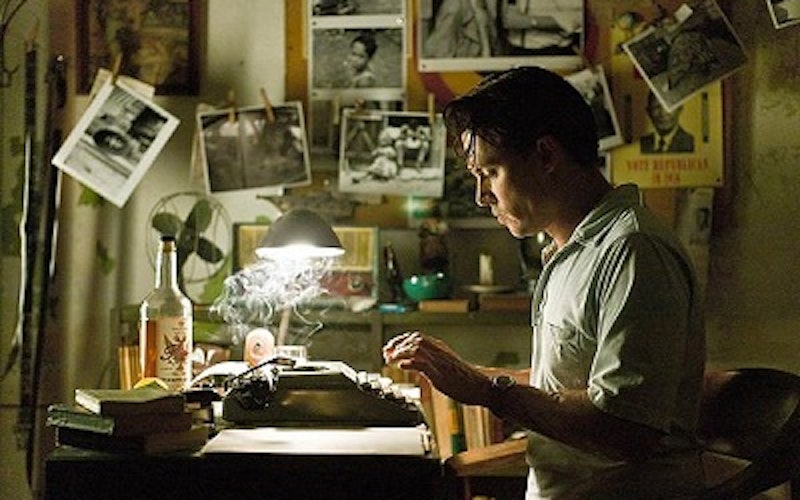
Music
What Johnny Depp doesn't get about Hunter S. Thompson
"The Rum Diary" represents Johnny Depp's second attempt to bring the creative spirit of Hunter S. Thompson to the big screen, and it's also the second instance where he's failed. What’s interesting is that this time he’s managed to get the infamous gonzo journalist wrong in a completely different way.
Depp's first foray was 1998's "Fear and Loathing in Las Vegas," a trippy, bedraggled mess of a movie that portrayed Thompson as an inebriated clown. There was little sense of why the man's work mattered.
"The Rum Diary" is far more respectful, likely because it's been produced since Thompson's 2005 death. Indeed, Depp's performance here - once again playing a fictionalized version of Thompson - is something of a eulogy. Respectful, elegiac, sugar-coated - exactly the sort of things Thompson hated.
One of the author's early novels (thought belatedly published), "The Rum Diary" is a thinly veiled fictional take on his adventures as a journalist-for-hire in 1950s Puerto Rico, when expatriate developers were in a race to import the American Dream (Thompson's favorite target) on the backs of the exploited islanders. The novel captures Thompson's disgust at all this, but the movie goes a step further, portraying him as some sort of social crusader - Che Guevara with a pen.
What "Fear and Loathing in Las Vegas" and "The Rum Diary" both miss is Thompson's most distinctive element: his prophetic disillusionment. Reading Thompson, I'm often reminded of the Old Testament prophets who called out the hypocritical ways of God's people. There’s been talk lately about Steve Jobs being something of a secular prophet, but Thompson is actually a better example.
In "The Rum Diary," for example, Thompson offers this description of a newspaper editor who publishes sunny lies for willfully blind readers:
"He was just another noisy little punk in the great legion of punks who marched between the banners of bigger and better men. Freedom, Truth, Honor - you could rattle off a hundred such words and behind every one of them would gather a thousand punks, pompous little farts, waving the banner with one hand and reaching under the table with the other."
The passage has the sting of condemnation, the distaste for deceitfulness, that you also find in the words of Micah.
An interesting characteristic about so many of the Old Testament prophets is that they were often uneasy about their place in God's story. "I am ruined! For I am a man of unclean lips, and I live among a people of unclean lips," Isaiah protested, emphasizing his fallen state, his humanity, in the face of God's glory. Thompson had a similar awareness of his own fallibility. Though he despised the hypocrisy surrounding him - the sales pitch that America was a paradise without problems - he also acknowledged that he had partly bought into it, and was therefore a hypocrite as well.
Consider this Thompson prose, also from "The Rum Diary:"
"I shared a vagrant optimism that some of us were making real progress, that we had taken an honest road, and that the best of us would inevitably make it over the top. At the same time, I shared a dark suspicion that the life we were leading was a lost cause, that we were all actors, kidding ourselves along on a senseless odyssey. It was the tension between these two poles — a restless idealism on one hand and a sense of impending doom on the other — that kept me going."
"The Rum Diary" at least nods to this with a subplot in which the Thompson character half-heartedly agrees to take a PR job for a sleazy developer. But it's a brief allusion, when the movie's primary goal is to lionize him, as evidenced by a final piece of onscreen text that suggests the real Thompson went on to save America.
Such a noble, rosy depiction guts what's always been most interesting about Thompson: that this decidedly "heathen" writer was so deeply aware of our total depravity. He saw our need for redemption - collectively and personally - as incisively as any theologian. Indeed, he saw it as clearly as a prophet.
(Photo courtesy of Fox Searchlight Pictures.)
Topics: Movies, Culture At Large, Arts & Leisure, Books, Theology & The Church, Faith, Theology